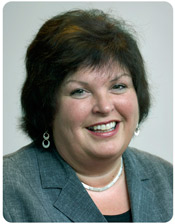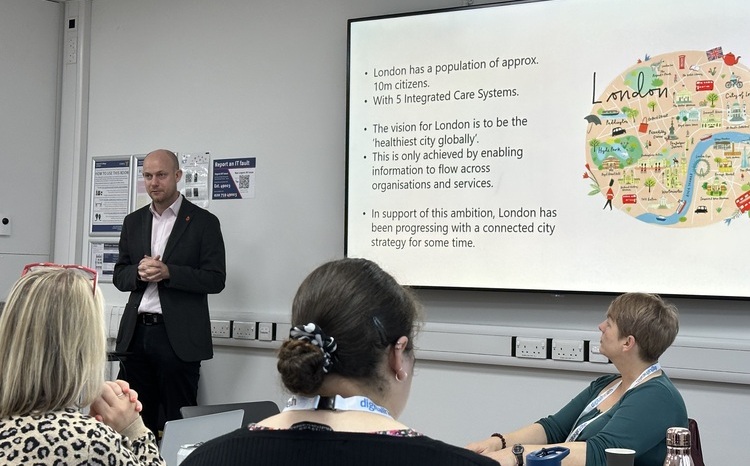McKesson says ESR job done
- 12 February 2008
 |
McKesson is an anomaly, a drug distribution giant, the company ranks 18th in Fortune magazine’s listing of the 500 largest companies in the U.S. with annual revenues of over $100bn, and has a fast growing healthcare IT division, with a long history in the UK and installed base in many trusts.
Despite these impressive credentials, McKesson UK didn’t make the first cut back in August 2003 when heavyweight firms were being sought for the NHS IT programme. Four years on though and McKesson’s UK MD has a good story to tell on the company’s proven ability to deliver large scale programmes.
The NHS Electronic Staff Record sits outside the NPfIT programme, yet is one of the biggest single NHS IT projects yet carried out, involving every employee of the health service and every NHS organisation. As well as moving every NHS trust onto Oracle HR, it entails extensive change management. It is with an understandable degree of pride that McKesson is approaching the final leg of the project, due for completion this April.
The project has been delivered in 12 waves, each covering around 100,000 employees, with the last one now underway. “It’s our biggest health IT project on this side of the Atlantic,” says Charmaine McDonald, the charismatic Canadian MD of McKesson UK. After a slow start, the roll-out programme began in March 2005.
McDonald, who was a director of nursing, before joining McKesson in 1996, has a track record as an enterprise project manager, specialising in “big multi-state, multi-facility implementations”.
Originally planned to be introduced alongside mandatory shared financial services, ESR was de-coupled from the Shared Services project in May 2003.
ESR is outside the Connecting for Health programme, but offers vital HR tools and data to trusts. “Once you have ESR you can really start managing workforce planning; understanding what you are paying staff and whether you are meeting statutory requirements.”
“Despite the size and complexity of the project the roll-out has been delivered in time with very limited change control,” says McDonald. “We have taken about 50 trusts through the programme every other month.” She admits that even within McKesson there were some who didn’t think it could be done.
“When we told our US parent company that we’d hired 100 people to do 50 hospitals every two months they said it couldn’t be done, there’s not enough talent, but we managed to hire some great people. People have wanted to be on this project.” McKesson have had between 250 and 300 people working on the project during the roll-out phase.
Tactics for success
The key to success, says McDonald, has been McKesson’s rigorous methodology. “We have a methodology which is about including staff who understand change management. You only needed to see the conditions some of the pay departments were working in – they were not being treated the best. The issue was how much change could they take.”
She added: “It’s been a big project with an amazing roll-out plan.” Part of the change process has been McKesson using its change management education tools from the U.S.
She says that what sets apart the ESR project from other McKesson programmes internationally is its scale and complexity.
Through a recent acquisition, McKesson is also offering time attendance and rostering. McDonald says they are working through the product before they offer it to the NHS.
McDonald says the success of the ESR project has attracted the attention of McKesson’s US parent. “Because of the success of the project, the San-Francisco main board has agreed we can invest in the UK public sector.”
McDonald says that it is not an accident that she has two business development VPs looking to identify the best opportunities in the UK market. “That’s highly unusual for a company of 600,” says McDonald.
Next products
Asked whether McKesson still has ambitions to deliver enterprise-scale clinical systems in the UK, McDonald says yes, but questions where the market is. “I would love to deliver a clinical solution in this country. We’ll keep looking at the opportunity.”
McKesson’s continued involvement in specialist NHS clinical systems is, however, shown by its selection last July as the provider of child health software to Fujitsu, the local service provider in the south of England.
But it is the world not covered by NPfIT that appears to be the biggest priority area for new growth. McDonald says that McKesson has “a lot of wonderful tools it can bring to the UK that are outside Connecting for Health.” Increasingly, the company is focusing on selling into the NHS portal and business intelligence solutions, already established in the U.S. but not part of the LSP offered solutions.
“What I’m positioning ourselves for in the clinical arena is for tools that are not massively expensive and don’t require you to make tough decisions between us the LSP solution,” says McDonald.
McKesson’s portal product, called Physician Portal, has already proved popular in the US, offering hospitals ways of getting the maximum value from existing IT systems and data, getting the most out of past technology investments rather than have to rip them out. Incorporating features such as single sign-on, integration and data analysis, they provide an attractive option to trusts with fragmented historic IT investments.
Portal technologies also potentially offer a model to deliver patient-centred views of records and clinical data. McKesson says it has a US product that it would like to bring over to the UK, which delivers consumer-based healthcare, enabling patients to interact with the GP.
Another product designed to offer trusts quick wins and meet needs unmet by LSPs, is McKesson’s business intelligence product, Horizon Business Insight Solution. Developed for the US market, the solution has been re-tooled for the UK over the past 12 months and is being positioned to help trusts and PCTs meet the data challenges of commissioning.
“We have a lot of opportunities in front of us,” says McDonald.
Asked about the current state of NPfIT, and whether or not winning contracts four years ago has proved a blessing, McDonald told EHI. “The truth is that knowing McKesson there is no way that McKesson San Francisco would have played. San Francisco would have pulled the plug, they would never have carried as much risk on the balance sheet.”
Jon Hoeksma




